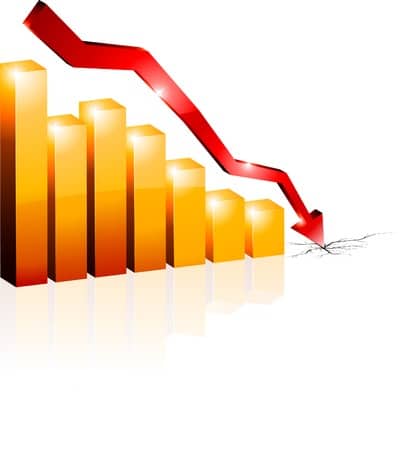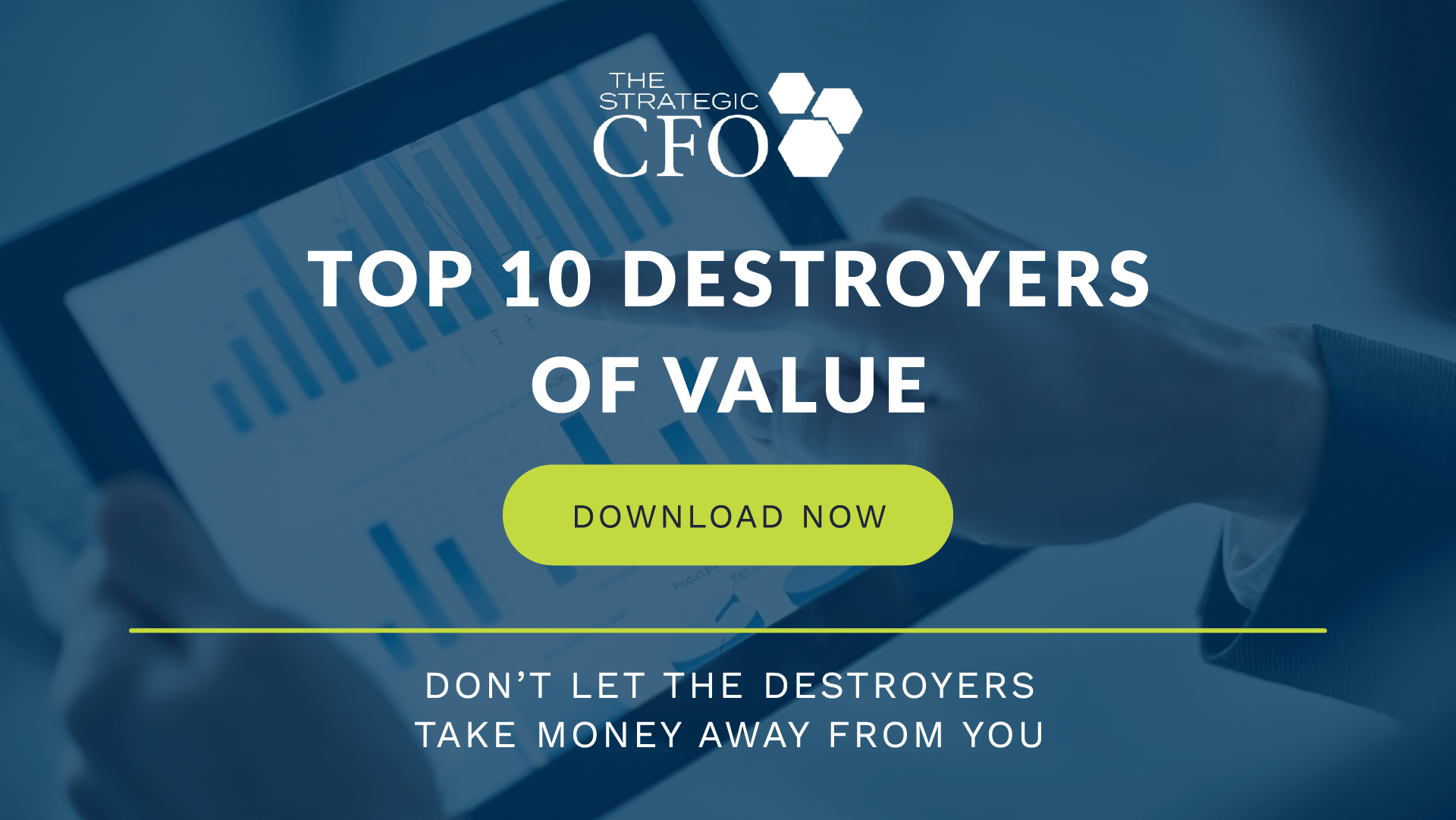As a former CEO to some CEOs, this Blog is to my counterparts that “don’t know what you don’t know.” I have seen time and time again closely held businesses that have experienced growth make the same mistakes over and over again. To the CEO that believes bookkeeping is a necessary fixed cost that should be minimized, here is a money making tip. You can’t afford not to spend money on the accounting department if you want to be successful.
The Big Mistake
Your company has grown over the years; you have experienced good times and maybe some bad times. Additionally, you have taken a nice paycheck and sometimes, some nice bonuses. You got used to a certain life style. And you did all of this with a bookkeeper that does not cost you much. But your company has grown. Still in the back of your mind, you know something tells you that you are not comfortable with your accounting records. But you elected to keep cost down for the bookkeeper and you do not spend much on accounting.

My Tax CPA Does It All
Maybe until now, some of you have your outside CPA that prepares your tax return also prepare year-end financials. This is not a knock-on tax preparers, but your CPA that prepares your tax return is an expert in one of many fields CPAs work in. For example, I am a CPA, but there is no way I would prepare my own tax return. Tax laws change way too often. I just want to maximize my deductions and pay my fair share of tax, but not more than that. That is why I have my tax CPA prepare the tax return.
But over the course of my career, I have found that most tax CPAs do not have operational expertise. They have not run a manufacturing or service business, nor have they had any P&L responsibility. The Tax CPA is considering accelerated depreciation, maximize expenses, etc. This is quite the opposite from a management set of financial statements. The role of the CPA Tax preparer is totally different from a “operational” CPA, Controller or even CFO.
Minimizing the Back Office For the Wrong Reasons
Most CEOs that I have worked with argue to minimize the cost of the back office. That includes the cost of preparing financial and accounting records. But think about this… The Securities and Exchange Commission (SEC) does not require public companies to prepare their financial statements according to Generally Accepted Accounting Principles (GAAP) because they pulled this out of thin air as another way to regulate. The SEC requires public companies to prepare their accounting records and financial statements based on GAAP because it is the best way to present fairly the results of your financial operations to third parties reading your financial statements. In other words, It’s the RIGHT way to keep your books!
In some cases where there is significant debt and exposure, some banks also require that the company present your accounting records based on GAAP – regardless of whether it is a Public or Private company. Some debt situations even require an audit. The banks simply make it one of the covenants related to your debt. When you present your books and records per GAAP, you have accurate financial statements, everyone is assured your accounting is correct.
The Importance of Using GAAP
So, if a lot of brain power has been put into coming up with GAAP, and the general consensus is that GAAP is the right way to present your financials and accounting records. Why would you as CEO not require that your financial statements be presented per GAAP?
I have been an “operational” type CPA for over 27 years now. In addition, I have held the office of CEO twice. I have used my expertise in public company environments and private companies both as an employee and as a consultant in the U.S. and in other countries. I have seen many very successful small, medium and large private companies and they were all keeping their financial records per GAAP. Yet, I have NEVER seen a significant company (not a micro or small business) be successful and properly run without keeping their books and records per GAAP.
So why is it that CEO’s of closely held (private) business still permit their accounting records to be kept some other way? The answer: they do not want to spend money on a fixed cost such as accounting. But they will spend money on the sales team, hunting leases, extravagant meals or parties.
Not getting the basics down – such as GAAP – leaves money on the table when you are exiting the company. Increase value with our Top 10 Destroyers of Value whitepaper.

You Can’t Afford Not to Spend Money on the Accounting Department
These are real life examples and outcomes of minimizing the cost of your accounting department that I have lived…
The service company incorrectly books gains on U.S. dollar receivables. In conclusion, they had to reverse $8 million from earnings.
I have seen this one several times. The company does not have some large assets on the balance sheet, because their tax preparer said they used accelerated depreciation. As a result, the balance sheet assets are severely understated. Hint: your value is understated. IT’S ABOUT THE MONEY DUDE!
The manufacturing facility does not properly accrue costs. As a result, their margins are way off, and the CEO wondered why they were always short on cash.
The company did not properly reconcile accounts including cash. This led to fraud.
The company did not properly recognize revenue. In conclusion, the company was understating revenue by millions of dollars.
I can go on and on with more real-life examples.
If you do not have your financial statements presented per GAAP, how are they prepared and presented? Do you really know your margins in your P&L. Do you really have all your assets, liabilities and equity presented correctly? Is your P&L, Balance Sheet and Cash Flow statement presented correctly? Guess what? Your ratios that your controller or CFO should be analyzing are not correct.
Leadership Needs to Believe in GAAP
Why do you think Exxon, Walmart and all other public company CEO’s believe in GAAP? I have also seen many small, medium and large closely held private companies keep their accounting records per GAAP. These are all successful companies. They know their margins, they know where cash is, they know their ratios and guess what, they know how to forecast!
I have also seen time and time again good companies that have been around a while and have experienced growth, and NOT prepare their financials per GAAP. And every one of these CEO’s and companies has the exact same issues.
- They really don’t know their margins in their P&L
- Some companies don’t even really know their actual revenue
- There is always that doubt in the CEO’s mind as to what is really going on in the business
- The CEO lives a stressful life
- Every time there is even the slightest decrease in margins, there is even a bigger disproportionate stress on cash
- If your books are not per GAAP, then most likely they are not on the accrual basis; if that is the case, then you are 60-90 days behind your business
- Having your books on an accrual basis is just the first step. There are many other accounting rules, procedures and pronouncements to get your books per GAAP. Just because they are on accrual basis, does not mean they are per GAAP. GAAP “rules” actually change frequently

In Summary
In my consulting business, I have seen CEOs that are “smart” as in they know what they don’t know. They bring us in to get the problem fixed. Although it takes time and money, the CEO is fully supportive and we get it done. These are the companies that grow and ultimately have a successful liquidation event. Or they leave a well-run machine to their family or employees.
But it shocks me to continue to see companies as large as $120 million in revenue, with a couple hundred employees that have not professionalized their accounting department. No one knows the true margins. Everyone stresses out about the “accounting records.” There are no correct historical financials, and most certainly, there are no forecasts. Unfortunately, there is no analysis of the business at all. In some high margin “hot” industries, this works for a while. The sins are buried. But millions of dollars are lost without knowing it. But, since ultimately everything ends up in cash, when that “hot” industry has even a slight downturn, the CEO feels the cash crunch.
[box]Whether you are trying to increase the value of your company or positioning it for sale, this issue of unknowingly leaking cash is a destroyer. Learn how to tighten your belts and increase value with our Top 10 Destroyers of Value whitepaper.
Don’t be Cheap
Don’t be cheap. Spend the money (which is usually less than the hunting lease) to get your books and records based on GAAP basis. Get your priorities straight. Continue to have a professional accounting department in your business. YES, you will spend more than you are currently spending. But you can’t afford not to spend money on the accounting department!
Consider this… I had one investment banker with a very large firm tell me the difference in a valuation of an acquisition target from a company that has accounting records per GAAP and solid accounting department versus one that does not have a professional accounting department and accounting records not per GAAP is a difference of 20%-30%. I had another investment banker tell me the difference in valuation is “one turn of EBITDA”. The use of EBITDA and multipliers is often used in valuation.
So if your company generates $2 million EBITDA and the multiple used is a 5, then your value would be $10 million with a professional accounting department and books per GAAP. In comparison, your value is $8 million with an unsophisticated accounting department and accounting records not per GAAP. I don’t think your professional accounting department will ever cost you $2 million per year! But not having it will.
Not having your financial records per GAAP is one of the destroyers of value. If you want to protect the value of your company, download the free Top 10 Destroyers of Value whitepaper to learn how to maximize your value.



